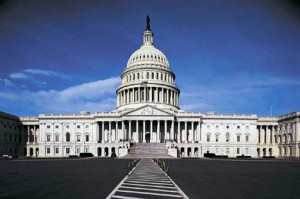 “Politics,” I said to a 20-something friend recently, “is the art of the possible. It is not evil. It is about how we work together to do the most good for the greatest number of people at any given time.”
“Politics,” I said to a 20-something friend recently, “is the art of the possible. It is not evil. It is about how we work together to do the most good for the greatest number of people at any given time.”
The 20-something was surprised.
“What did you say ‘politics’ is?” she asked.
“It is the art of the possible,” I told her. “I may not get everything I want, and you may not get everything you want, but in the end, if it is done correctly, if we are faithful, together we achieve the best result possible at that moment.”
The 20-something was excited to learn this. She had never thought of politics in that light before, and frankly, I’m not surprised. She’s grown up in an age when politics is so partisan that it’s hard to remember that both sides of any given argument are even discussing the same thing, much less striving to work together.
As I watch what is happening in this country right now – particularly the budget debates taking place in Congress and the union-government showdown in Wisconsin – I wonder if those who are professional politicians remember the definition of their jobs, to care for the people.
Instead of standing up and taking responsibility for what they have done, veteran lawmakers in Congress pretend they have had nothing to do with the last 10 years of running up the deficit to the point that it endangers all that we do, and now threaten to slash and burn not just the budget, but many of the good things our government does.
Newcomers to Congress act as though they have no responsibility for any program that existed before they arrived in Washington, and that they do not care for the outcome of any action they take … as long as the deficit is reduced.
Washington, and that they do not care for the outcome of any action they take … as long as the deficit is reduced.
Now, threats swirl throughout Washington about another federal government shutdown, which we haven’t seen since the mid-1990s. No one seems concerned about the economic impact of a shutdown, either on the government, on the people of this land who would be directly affected, or even on the hot-dog vendors on the street, who would lose their income as well.
The Speaker of the House, when told that his recommended budget actions would mean the loss of hundreds of thousands of federal jobs – this at a time when the unemployment rate is still at 9 percent – shrugs his shoulders and says, “So be it.” (Does the Speaker know that this is the English translation of “Amen,” which comes from the Hebrew Scriptures? Is he aware that in saying, “So be it,” he is endorsing “job-killing,” which he claims to be fighting?)
I think it is safe to say that every single one of us in this country knows that we have to do something about the budget and the deficit. But this slash-and-burn approach has nothing to do with the art of the possible.
Instead of working together to achieve the best possible results, both sides seemed locked in a battle of egos, with the American people suffering the consequences.
How does intransigence fulfill the art of the possible? What good does it do to continuously say, “Read my lips”? (Doesn’t that remind you of children on the playground, saying, “Am too! Am not!”)
Leaders do not lay down ultimatums while simultaneously refusing to listen to anyone. Leaders make the hard decisions necessary to care for the most people – that, after all, is government’s purpose, to make secure the lives of the people.
There’s a hard-and-fast deadline coming up that means that something has to be done, and soon. If our representatives bothered to work together, they could achieve the possible.
We know that is possible to cut spending, to balance the budget, to lower the deficit, because all of that happened in the Clinton administration. Of course, first we had to go through that shutdown during that same administration.
So what would it take to move from stubborn “Heads-I-win-tails-you-lose” gamesmanship that serves no one to a dance that actually will lead to the best possible solutions for everyone?
 How much longer will it take for everyone to realize that all things indeed are possible – but only when we remember to follow the instructions we have received from God, and not from polls, not from lobbyists, not from people more concerned with advancing themselves at the costs of others?
How much longer will it take for everyone to realize that all things indeed are possible – but only when we remember to follow the instructions we have received from God, and not from polls, not from lobbyists, not from people more concerned with advancing themselves at the costs of others?
Is there waste in the federal budget? Absolutely. Some of the rules are so convoluted that of course we are paying too much to implement them.
But it is not faithful, to God or to the people, to slash and burn simply to make a point, or to get back at someone you don’t like.
This country right now is faced with the ultimate opportunity to achieve the possible, to work together for the good of the people.
After all, isn’t that why those in office ran for office? So they could care for the people of this land?
McClatchy-Tribune New Service, 2011




